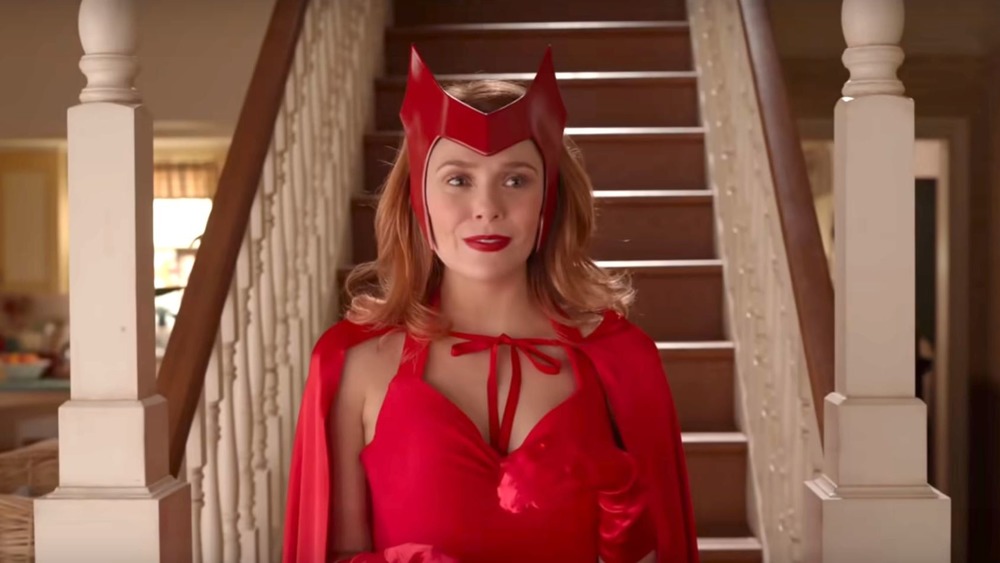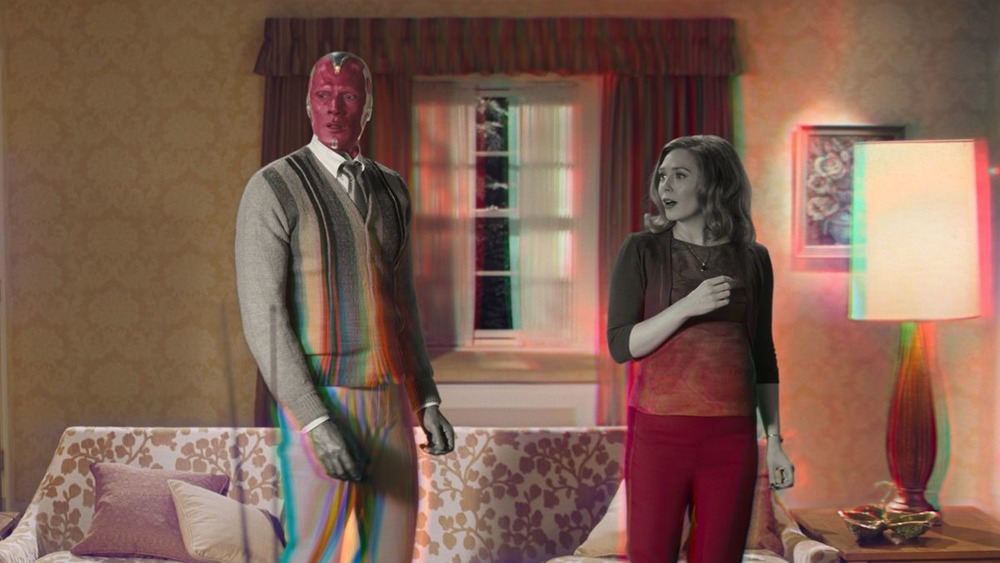The Classic Anthology Series That Influenced Marvel's WandaVision
Wandavision is a sitcom. It also really, really isn't a sitcom.
The upcoming Marvel Studios series, set to premiere on Disney+ on January 15, is already earning rave reviews for being a big swing unlike anything Marvel has produced before. The detail-laden trailers — which feature the Avengers powerhouse Wanda Maximoff, AKA the Scarlet Witch (Elizabeth Olsen) and her android lover the Vision (Paul Bettany) celebrating a seemingly blissful, "American Dream"-type home life complete with babies, a nice house, and nosy neighbors — come across as loving tributes to the history of TV sitcoms. References to classic shows like I Love Lucy and Bewitched, as well as more contemporary sitcoms like The Office, abound. Beneath all the cheeriness and quirky moments, though, lurks an undercurrent of cosmic malevolence — and details that don't line up. Because as Marvel fans know, Vision is supposed to be dead. Wanda not only possesses strange powers capable of warping reality, but also a past filled with trauma, culminating in the aforementioned loss of her partner. Something is amiss.
On January 10, Looper was invited to a virtual press event to discuss WandaVision (which kicks off the MCU's long-awaited Phase 4) with the cast and crew who brought it to life. When the conversation turned to discussing the show's impending tonal shifts — as it inevitably moves from cheerful sitcom to whatever darkness might lay behind all the bubbly smiles — two key members of the creative team named a classic anthology TV series that deeply informed the making of the Marvel series. And no, it's not a sitcom.
WandaVision's creative team entered the Twilight Zone
WandaVision draws from many influences beyond the sitcoms it more obviously pays homage to. On the comic side of things, die-hard fans have pointed toward such comic runs as Tom King and Gabriel Hernandez Walda's The Vision series, as well as the 2005 story arc "House of M." When it comes to influence on the screen, though — particularly in regard to telling stories that start as one thing, and then dramatically shift — writer Jac Schaeffer specifically named Rod Serling's classic spooky series The Twilight Zone as a blueprint.
As Shaeffer put it, "Twilight Zone is an enormous influence on me, personally. It was so incredibly deft at that turn. You think you're in one thing and then suddenly it's flipped on its head. We were all incredibly enamored by that. There are a lot of current shows right now, prestige series, where you watch a couple episodes and you think the show is one thing and then by episodes 4 or 5 it flips the script."
Director Matt Shakman also named The Twilight Zone as an influence. "That's how we approached the shooting of it and the look of it," he said.
This goes a long way toward explaining the unnerving tone present in WandaVision's trailers. While contemporary viewers are most familiar with The Twilight Zone for classic episodes like the airplane-themed "Nightmare at 20,000 Feet," rewatching the series reveals a program that was never afraid to lead viewers in one direction, then turn around and yank them somewhere else. Serling's program would tackle social, political, or psychological themes through its various supernatural plotlines, wasn't afraid to sometimes be humorous, and often involved characters living in worlds that aren't what they seem.
Naturally, none of this bodes well for Wanda and Vision's domestic bliss, but it does point toward WandaVision being one of the most fascinating Marvel Studios offerings thus far.
The series premieres on Disney+ on January 15.

